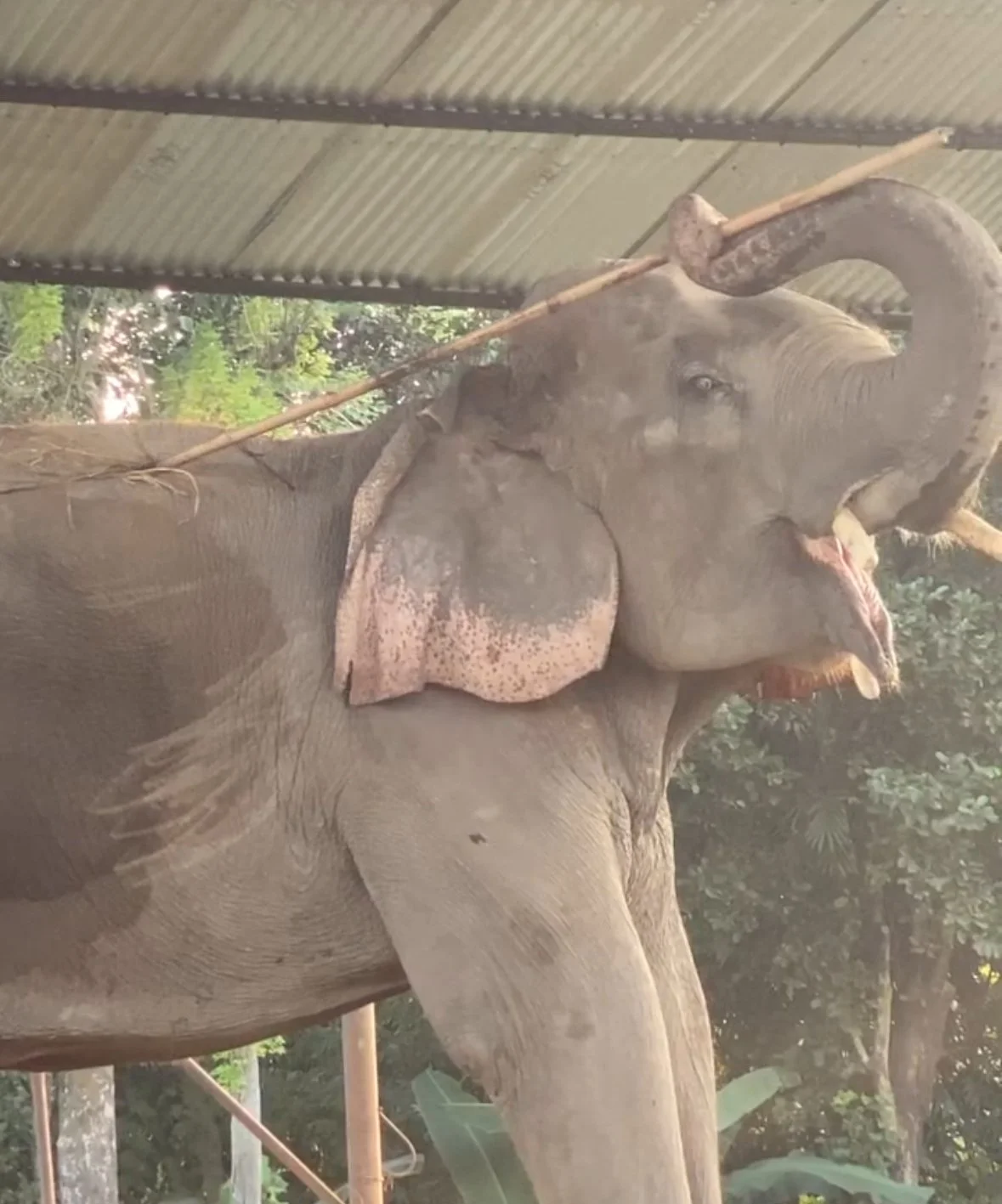Unlocking the Secrets of Elephant Intelligence
Elephants are not just the largest land animals on our planet; they are also among the most intelligent. Their intelligence is displayed in various remarkable ways, from self-recognition to showing complex emotions, maintaining intricate social structures, and demonstrating impressive problem-solving skills. This blog post delves deeper into the fascinating aspects of elephant intelligence.
Self-Recognition: The Mirror Test
One of the most impressive demonstrations of elephant intelligence is their ability to recognize themselves in a mirror. The mirror test, a renowned experiment used to gauge self-awareness in animals, has revealed that elephants, akin to humans, great apes, and dolphins, can comprehend that the reflection in the mirror is their own. This level of self-awareness is a rare gem in the animal kingdom and underscores the sophisticated cognitive abilities of elephants.
Take a look at the video below, which shows an elephant assessing himself in the mirror. If you skip ahead to 3:50, you’ll see proof that these elephants truly know they are looking at themselves. In the mirror test conducted with elephants, a mark—an "X"—is painted on their temples. Upon encountering a mirror, these elephants touch the "X" on their own temples and orient themselves to better view the mark in the mirror. This behavior indicates self-recognition, as they understand they are seeing themselves in the mirror, not another elephant.
Complex Emotions: Grieving and Empathy
Elephants are renowned for displaying complex emotions, particularly how they grieve for their dead. They have been observed showing what appears to be mourning behavior, such as lingering around the bodies of deceased herd members, gently touching their remains with trunks and feet, and even covering the body with leaves and soil. These behaviors suggest a deep emotional understanding and empathy, which are rare in the non-human animal world.
Case Study of Grief
There have been numerous documented instances where elephants have shown signs of grief. In one case, a herd was seen returning to the site where a herd member had died, repeatedly over several days, touching the bones with evident care and attention. Such instances provide compelling evidence of the emotional complexity within elephant societies.
Social Structure: Family Bonds and Hierarchies
Elephants live in matriarchal societies, where family groups are led by an older, experienced female. The social structure of elephant herds is complex, with strong bonds between family members. The matriarch plays a crucial role in leading the herd, making decisions about travel, foraging, and defense against predators.
The social interactions within a herd are sophisticated, involving cooperation, division of labor, and even communal care of the young. Elephants are known to help injured or ill members of their group, demonstrating high social cooperation and empathy.
Problem-Solving Skills
Elephants possess a unique set of problem-solving abilities, a marvel to witness both in the wild and in controlled studies. They demonstrate tool usage, employing sticks to reach inaccessible spots or to swat flies. Their innovative behaviors, such as collaborative obstacle removal or ingenious food and water access methods, are a testament to their exceptional intellect.
Examples of Problem Solving
In a truly remarkable instance, researchers observed elephants strategically sealing a water hole with a chewed-up ball of bark, effectively preventing the water from evaporating overnight. This behavior not only showcases their problem-solving skills but also their capacity for future planning, a cognitive trait once believed to be solely possessed by humans.
The intelligence of elephants is a source of endless fascination and inspiration. Their ability to recognize themselves, exhibit a wide range of complex emotions, maintain intricate social structures, and solve problems, all serve to underline their cognitive sophistication. As we delve deeper into the world of these magnificent creatures, we not only gain insights but also develop a profound respect for the intelligence of the animal kingdom.


